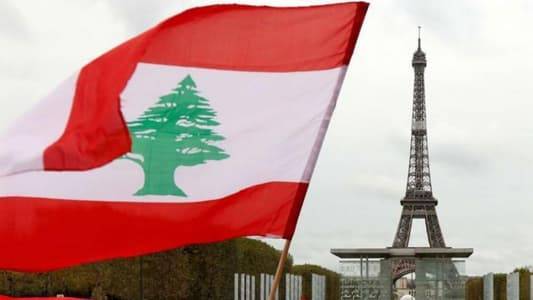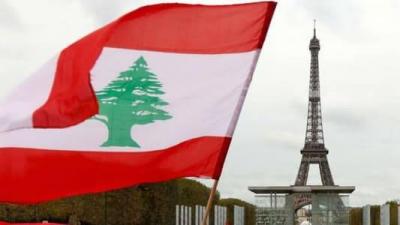After the visit of the head of the Free Patriotic Movement, MP Gebran Bassil, to France to explore the presidential election process, one may question the French role in Lebanon and its local impact: Do the French have the necessary tools to activate that role? Or is it merely a "nostalgia" for a past overshadowed by geopolitical events in the region?
There is no disagreement that France has the ability to take initiative in Lebanon, similar to what occurred after the Beirut port explosion when French President Emmanuel Macron personally visited Beirut, declaring that the "loving mother" stands by the "wayward son," and that his disobedience does not diminish the mother's care for this wonderful country.
At that time, the French president presented a political initiative that breathed life into the government, which was facing popular grievances, returning control to it. However, Lebanese officials thwarted and manipulated this initiative, leading to its failure. The French were let down after the Free Patriotic Movement, supported by Hezbollah, rejected their initiative, pushing President Saad Hariri to refrain from forming a government. Thus, Macron's initiative took its last breaths, revealing a painful reality the French refuse to acknowledge: their diminishing influence in Lebanon in favor of other players.
It later became clear that the French president overestimated his own position and that of his country, which is seeking recognized influencers to engage with, hoping to preserve its face before the French and the world. After Hariri's withdrawal, President Najib Mikati was entrusted with forming his government, facilitated by an Iranian-French presidential understanding, clearly illustrating that Iran in Lebanon is a major power, while France is merely a player needing others on the Lebanese stage.
Even former President Michel Aoun, who sought refuge in its embassy, was saved from a grim fate after his resounding defeat on October 13, 1990, and his radio-announced surrender. However, by dismissing the French initiative, he appeared to prioritize the Iranian role, recognizing that he could not rule without Hezbollah's approval, and that his son-in-law's presidential ambitions could only be achieved within the Iranian framework in Lebanon.
Thus, the Aounists, some of whom hold French citizenship, seemed ungrateful, with their interests and greed for a share of the power pie overshadowing principles and values. They contributed to making Iranian influence fundamental while relegating the French role to secondary importance. Regarding their role in scattering the Lebanese national interest, one need not say more.
Furthermore, the incapacity of French officials to enforce their threats of sanctions against those obstructing the government formation at the time indicated the decline of the French role in Lebanon. They accepted the Iranian influence rooted in the dominance of their Lebanese ally, who acts solely under the guidance of the Supreme Leader.
France, which had a decisive hand in establishing the Lebanese entity and understands its geographic importance on the eastern Mediterranean coast against British influence, lost its leverage after World War II, retaining only emotional and cultural influence to some extent. Bishara al-Khuri and Riad al-Solh achieved independence from France with external support, specifically British, followed by the election of Camille Chamoun, who was initially rejected by France but eventually accepted due to changing realities. The same goes for the election of Fouad Chehab with the approval of Egyptian-American backing, and the pattern continues to this day.
It is noteworthy that the French role regained strength after extending Emile Lahoud’s presidency for known reasons, the first being the Bush administration's rejection of that step, the deterioration of relations with Damascus, Rafik Hariri's international relations, and President Jacques Chirac's personal concern for the Lebanese file due to his strong friendship with the assassinated president. All these factors created serious tributaries in the resurgence of French influence. However, it soon waned again after Barack Obama came to the U.S. presidency, setting a foreign policy that allowed Iran to dominate Lebanon and Iraq, culminating in Michel Aoun’s election, which led to dangerous political transformations, isolating Lebanon from its Arab surroundings and weakening its foreign relations, distorting its historical image among international friends.
It is true that the company "Total" obtained a license to explore for gas in Lebanese waters, and it is also true that France played a role in bringing together various parties' viewpoints, but this would not have happened without the necessities of the Russian-Ukrainian war. The border demarcation file reached satisfactory conclusions without necessarily reflecting an expansion of French influence in the presidential file, particularly since the U.S., alongside Iran and Saudi Arabia, was present.
If we set aside the U.S. due to its stable interests, particularly regarding Iran, we must state that the French role oscillates between two factors: one represented politically by Iran through its armed ally, and the other economically represented by Saudi Arabia, which could independently help lift Lebanon out of its economic crisis but will not take this step without a clear political horizon indicating Lebanon's return to the Arab fold.
Without the convergence of these two factors, France cannot find solutions. Between these two extremes, the French are required to lower their expectations, as solving the complicated Lebanese file exceeds their individual capabilities.




